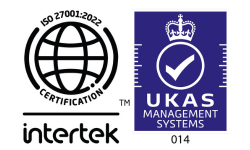Proper payroll management is critical to the success of any business. Without good payroll management, business owners are at risk of being fined by HMRC, and damaging their reputation. Payroll management isn’t an easy job. From sorting out salaries to ensuring you’re compliant with Pay As You Earn (PAYE) regulations and storing employee records for the correct amount of time, there are a lot of moving parts.
This process is made even more complicated if a business is managing their payroll in-house and manually across several spreadsheets and software. Here are five ways to successfully manage payroll.
Make sure employee records are all up to date
Ensure you take the necessary steps to ensure your employee records are all up to date and accurate, otherwise you’re at risk of a penalty.
Care should be taken to ensure information such as pay rises, promotions and salaries is entered correctly. The same goes with information that rarely changes, including National Insurance, full names and dates of birth.
You should also ensure employee records are updated to reflect employees taking Statutory Sick Pay (SSP), Maternity / Paternity Pay or Disability Pay. You could even choose to keep track of pension contributions.
When you keep records of maternity leave, sick pay and other types of leave, it makes it easier to work out what your employees are entitled to.
Be compliant with payroll legislation and regulation
Every UK business must comply with the General Data Protection Regulation (GDPR) when it comes to processing personal and business data, which affects payroll and Human Resources (HR).
You need to follow regulation when it comes to collecting information from your employees, how you collect it, how it’s stored and how long you can store it for.
If you do your payroll in-house, your team must be aware of upcoming changes to these regulations and when they take effect. For example the recent changes to IR35. Not only will you need to adjust your payroll process in response, but you will often need to inform employees of any changes on their end.
As well as GhrDPR, you need to stay up to date with any legislation or regulation changes and update your processes accordingly. You should also communicate these changes with your workforce. If you choose to outsource your payroll to a reputable provider, you can rest assured that you’ll be compliant.
Automate your payroll
If payroll is managed manually, it becomes a drain on time and resources. However, companies of all sizes can reduce the burden by automating their payroll processes through payroll software.
When looking for a payroll solution you should think about:
● The amount of technical support you need
● The size of your business
● How your employees are paid (are they on salaries, hourly or commission?)
● Any essential features you need
When you choose Payescape’s managed payroll, your payroll database is easy to update and removes the need for manually calculating payroll deductions, and HMRC submissions as this is done automatically. You can auto-enrol employees into your pension scheme with ease, keep track of time off, and auto-generate payslips.
Collaboration of teams
If you want your team to successfully manage your payroll, you must allow collaboration between your HR and finance departments.
Payroll is intrinsically linked to legal, finance, accounting and HR – when every department works together, payroll is much easier to manage.
For example, HR focuses on how to best reward employees, and payroll is responsible for ensuring talent is rewarded in the right way.
Additionally, HR and payroll both store confidential employee credentials. When you combine your payroll and HR software, mistakes are minimised and data is accurate.
Ensure you have payroll experts in house
If you find that your team is regularly making payroll mistakes, or they’re struggling to effectively manage the process, then you should consider outsourcing your payroll to a leading payroll software provider such as Payescape.
Whether you’re an owner of a small business or large corporation, it is vital that your payroll is effectively managed by employees and your provider.
To do this, you must ensure employee records are properly maintained and accurate and that your team is compliant with regulation and legislation.
Request a demo from Payescape today.














